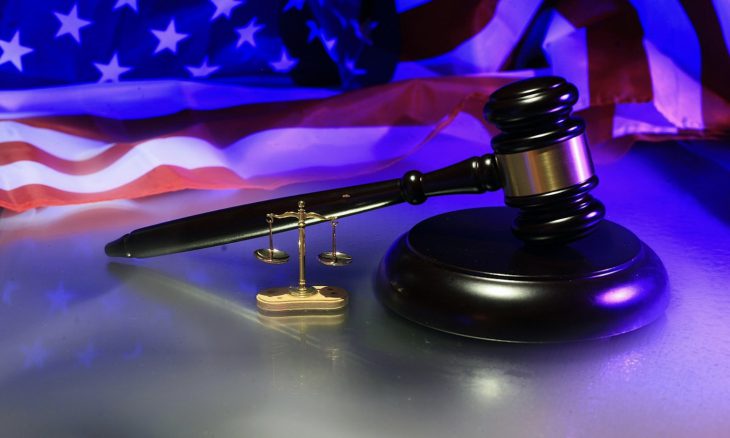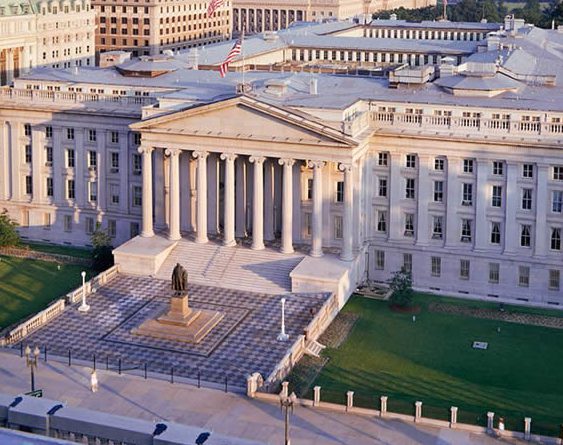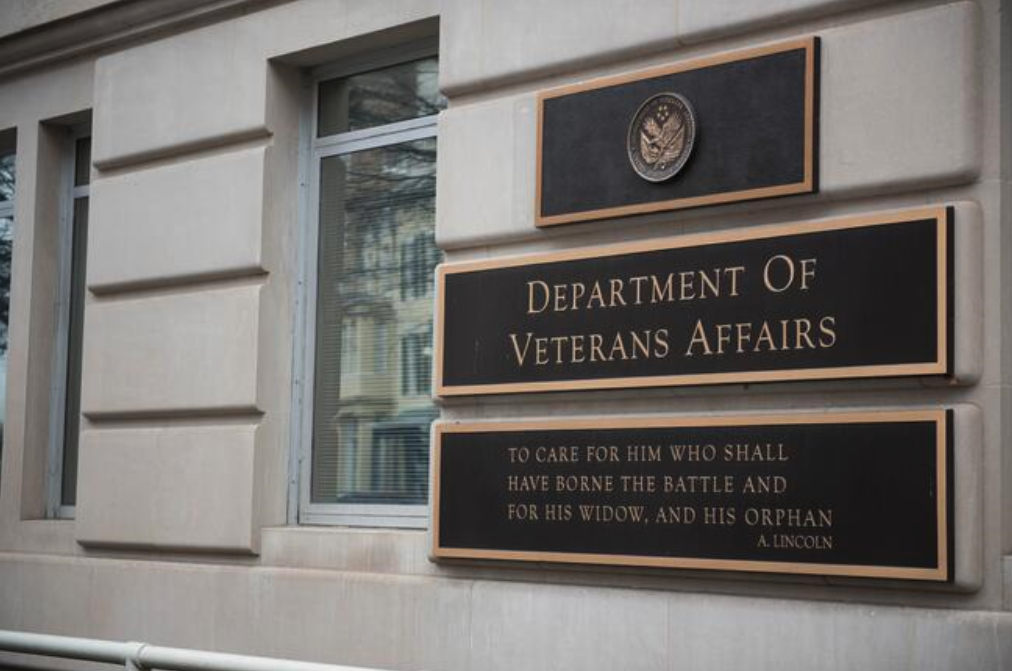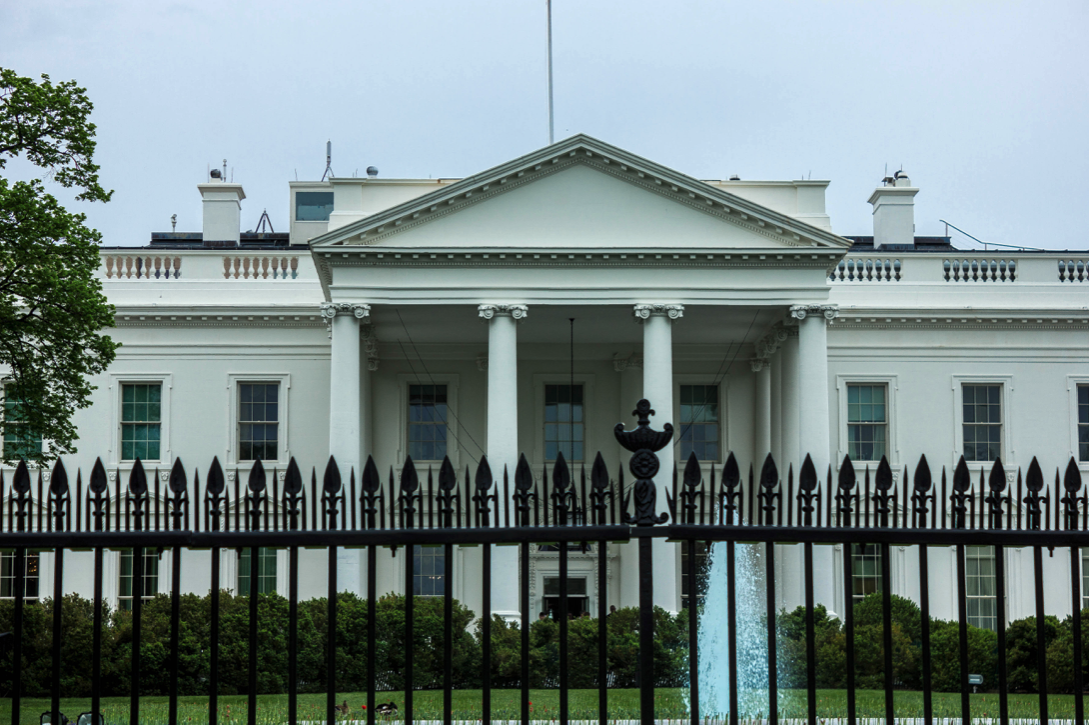A Mission of Upholding Laws and Securing American Liberties
PRAY FIRST for God to guide the Attorney General, U.S. Attorneys, and DOJ staff in their daily decisions, so they uphold the law with honesty.
The integrity of the upright guides them, but the crookedness of the treacherous destroys them. Proverbs 11:3
What is the Department of Justice (DOJ), and why did Congress decide in the late nineteenth century that the nation needed a dedicated Department of Justice? The U.S. Department of Justice was established in 1870 during the turbulent Reconstruction era. Congress created it to centralize the federal government’s legal work, which had previously been scattered across different agencies. In its earliest years, the DOJ confronted pressing issues such as enforcing federal laws in the post–Civil War South and prosecuting cases involving land fraud and corruption. The Department’s formation reflected a realization that the U.S. needed a dedicated institution to uphold federal law, represent the government in court, and ensure consistency in legal enforcement across states.
Origins and Purpose
The DOJ was born out of necessity. After the Civil War, the federal government faced an expanding caseload and rising demands for oversight. President Ulysses S. Grant signed the legislation creating the Department on June 22, 1870. The new agency consolidated government lawyers into a single entity with the Attorney General serving as its head. Over time, the DOJ’s mission expanded. While it was originally focused on representing the federal government in litigation, it became a central player in enforcing civil rights, prosecuting organized crime, and responding to national security threats.
The DOJ draws its authority from both the U.S. Constitution and federal statutes. Article II of the Constitution empowers the president to “take Care that the Laws be faithfully executed,” and Congress established the DOJ to carry out that responsibility. Through its various offices, the DOJ works to guarantee equal application of federal law, protect the public interest, and defend the U.S. in legal matters.
Structure and Leadership
Today, the DOJ is a large and complex department with multiple divisions. Key components include the Civil Division, which represents the government in lawsuits; the Criminal Division, which oversees federal prosecutions; the Civil Rights Division, which enforces anti-discrimination laws; and the Antitrust Division, which regulates competition. The Federal Bureau of Investigation (FBI), Drug Enforcement Administration (DEA), and Bureau of Prisons also operate under the DOJ umbrella.
The Attorney General leads the Department and is nominated by the President and confirmed by the Senate. As the nation’s chief law enforcement officer, the Attorney General advises the President, represents the U.S. in legal matters, and directs the work of all DOJ offices. By contrast, U.S. Attorneys serve as the chief federal prosecutors within their judicial districts. There are 93 U.S. Attorneys across the country, each nominated by the President, confirmed by the Senate, and responsible for enforcing federal law within their region. While the Attorney General sets broad policy, U.S. Attorneys handle the day-to-day prosecution of federal crimes and represent the government in civil cases at the local level.
Roles and Responsibilities
The DOJ’s work spans nearly every area of American life. It prosecutes federal crimes such as fraud, terrorism, drug trafficking, and cybercrime, while also defending federal agencies in court. It enforces civil rights protections, supervises bankruptcy cases, and works to ensure competition in the economy. U.S. Attorneys carry out prosecutions and decide which cases to bring forward, but they must follow both federal law and ethical guidelines that limit their discretion.
The Department also interacts closely with other branches of government. It advises Congress on legislation, argues cases before the Supreme Court, and provides guidance to federal agencies. This interaction emphasizes the DOJ’s role as both a legal adviser and a law enforcer.
Although the DOJ is part of the executive branch, its credibility depends on maintaining independence from partisan influence. Oversight systems exist to keep it accountable, including congressional hearings, judicial review, and the work of the DOJ’s Inspector General, who investigates misconduct within the Department. These protections are intended to reassure the public that legal enforcement is carried out fairly and transparently.
The DOJ shapes public trust in the rule of law. Its handling of major national challenges—whether combating organized crime, enforcing civil rights, prosecuting terrorism cases, or confronting cyber threats—has lasting effects on how we view our legal system. We may not interact with the DOJ directly, but its work influences our confidence that laws are applied consistently and that government accountability is real.
Current Federal Action
In 2025, the DOJ experienced a significant boost in its operational capacity thanks to federal budget increases and strategic resource allocation. The DOJ’s discretionary budget rose to $37.8 billion, enabling the hiring of over 1,400 new personnel, including agents, attorneys, and analysts. This expansion supports a more robust response to crime and enhances the department’s ability to enforce federal laws across a wider range of issues.
A major focus of the DOJ’s 2025 initiatives has been violent crime reduction. The creation of a $1.2 billion Violent Crime Reduction and Prevention Fund has empowered federal agencies like the FBI, DEA, and ATF to expand their field operations. Programs such as Operation North Star and Operation Overdrive have been scaled up to target fugitives and drug traffickers, while local law enforcement received support through the hiring of 4,700 new detectives via the COPS program. These efforts reflect a coordinated push to improve public safety nationwide.
Additionally, the DOJ has shifted its enforcement priorities to address transnational threats such as human trafficking and organized crime, while also implementing stricter charging and sentencing policies. The department now emphasizes prosecuting the most serious offenses and limiting plea deals, aiming for greater consistency and deterrence. Complementing these changes, the administration proposed $3.5 billion in mandatory grants under the Safer America Plan to further support community safety and justice reform. Together, these measures mark a renewed federal commitment to strengthening the DOJ’s role in protecting American communities.
Why It Matters and How We Can Respond
From its origins in Reconstruction to its modern-day responsibilities, the DOJ has grown into one of the most important institutions in American governance. Its mission has shifted with the nation’s challenges, but its core purpose remains the same: to uphold federal law and serve the public interest.
As believers, paying attention to the DOJ’s work is not just about politics or policy. It’s about recognizing the ways law shapes everyday life. Scripture reminds us that “the Lord loves justice; he will not forsake his saints” (Psalm 37:28). By caring about how the DOJ functions, we acknowledge that law and accountability affect our neighbors’ safety, dignity, and opportunities as well as our own.
This awareness also calls us to live out humility in conversation. When hearing information that seems misleading or contrary to truth, we are invited to respond with patience and discernment, not with hostility. Proverbs 18:13 warns, “If one gives an answer before he hears, it is his folly and shame.” Listening well before responding models Christlike care.
Finally, the DOJ’s existence reminds us of our shared responsibility to pray for those in authority. Paul exhorted believers to pray “for kings and all who are in high positions, that we may lead a peaceful and quiet life” (1 Timothy 2:2). The Department is not perfect, but its work touches countless lives. Praying for its leaders, workers, and decisions is one way to seek peace and order in society.
HOW THEN SHOULD WE PRAY:
— Pray for discernment against corruption or undue influence and for God to protect the DOJ from pressures that could compromise its mission. Better is a little with righteousness than great revenues with injustice. Proverbs 16:8
— Pray for renewed public trust and for God to heal divisions and strengthen confidence in institutions tasked with protecting the common good. And let us not grow weary of doing good, for in due season we will reap, if we do not give up. Galatians 6:9
CONSIDER THESE ITEMS FOR PRAYER:
- Pray for the Attorney General, U.S. Attorneys, and DOJ staff act with godly discernment and moral clarity in enforcing the law.
- Pray for fairness and impartiality in legal matters and that all people, regardless of status or circumstance, are treated justly under federal law.
- Pray for the DOJ’s work to promote confidence in institutions and contribute to peaceful and orderly communities.
Sources: Library of Congress, U.S. Department of Justice, U.S. Government Manual, Boston University School of Law, Federal Judicial Center









